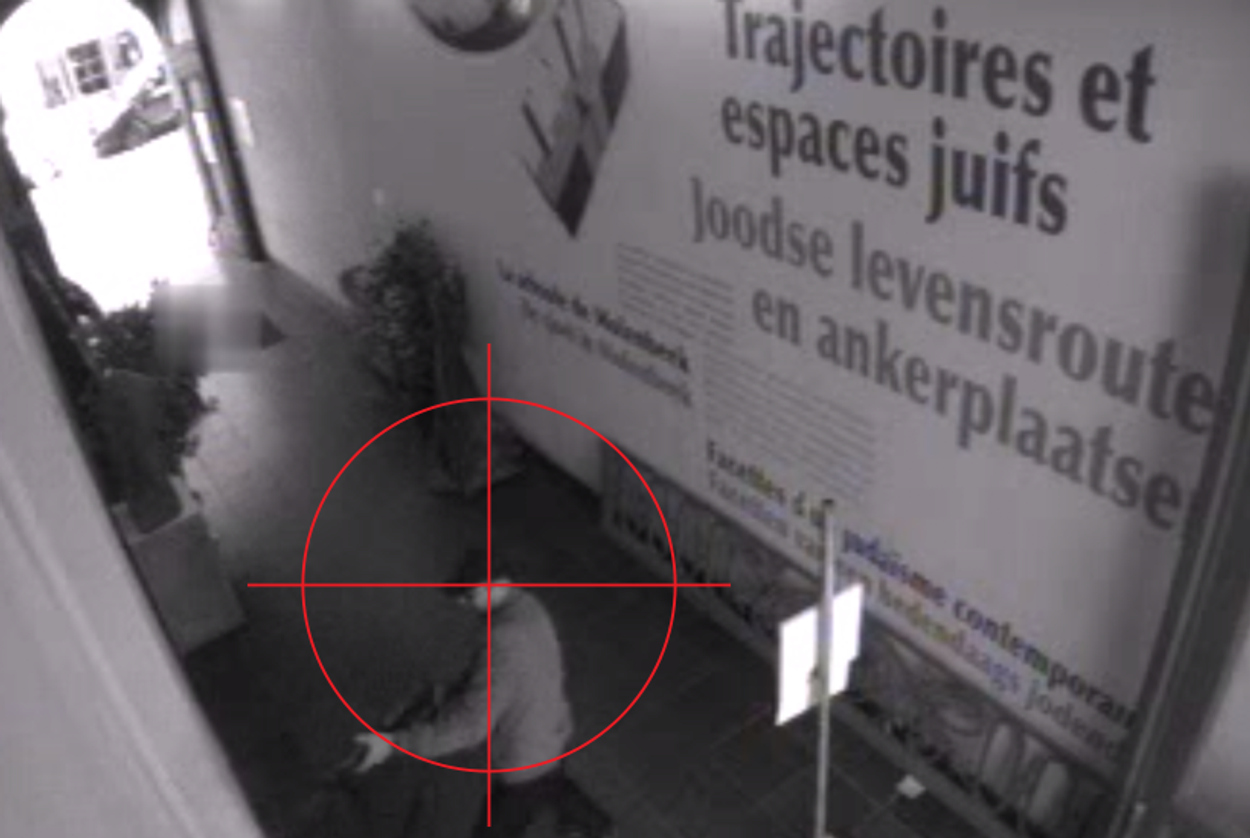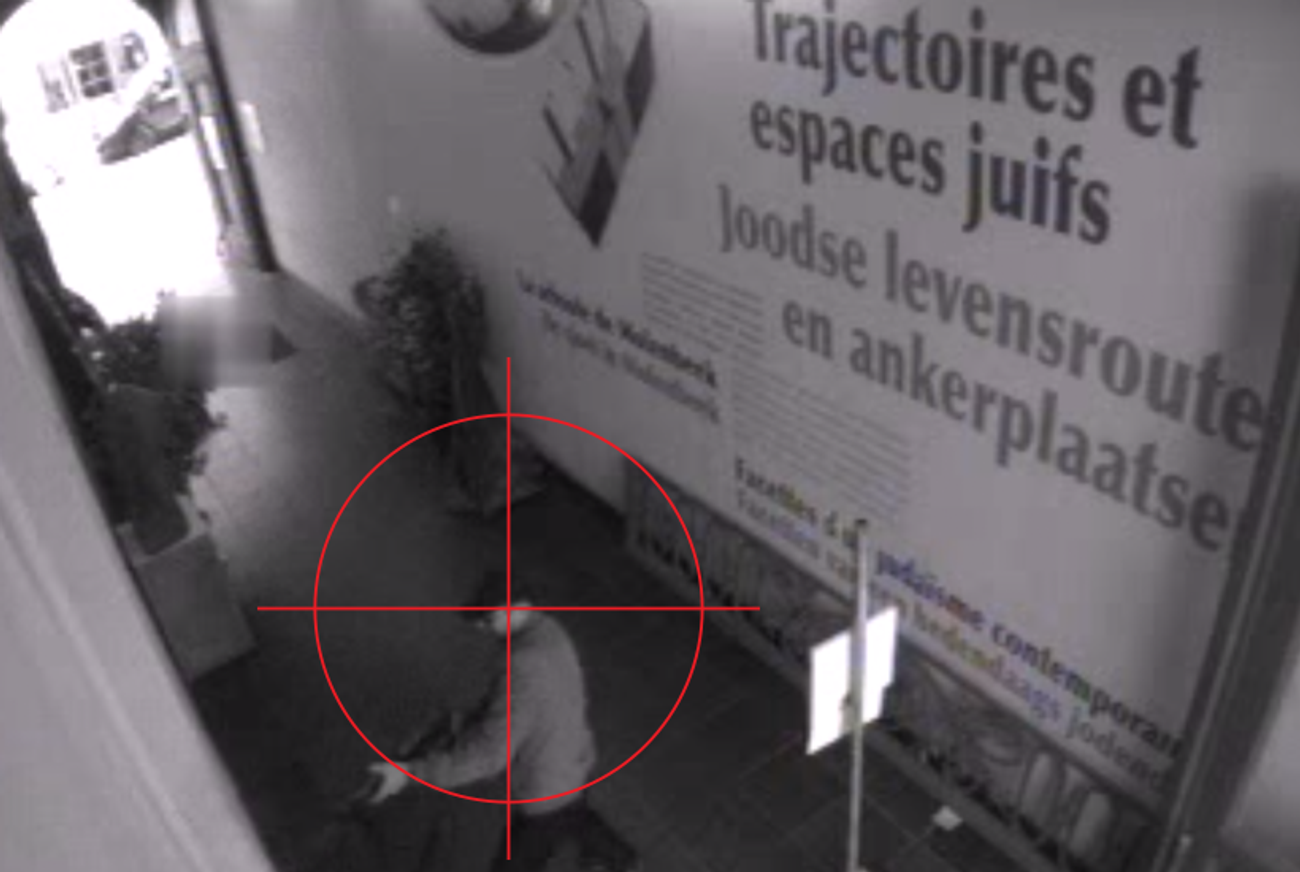After the Brussels Shooting, Should Israel Revamp Its Policy of Targeted Killings?
Belgian inaction may breathe new life into the policy, begun in the 1970s, of bringing terrorists to justice regardless of their location




The murder of two of its citizens in Brussels last week by an unknown gunman raises an interesting question: If the Belgian police fail to bring the shooter to justice, might the attack prompt Israel to act on its long-standing policy of targeted killings?
Known in Hebrew as sikul memukad, or focused thwarting, proactive strikes against known perpetrators have been a part of Israel’s antiterrorism arsenal since at least 1972, when, in the wake of a Palestinian assault in Munich that left 11 of its Olympic athletes dead, then Prime Minister Golda Meir convened a small committee of cabinet ministers—dubbed Committee X—to devise an appropriate response. The committee, which included Defense Minister Moshe Dayan and the head of the Mossad Zvi Zamir, drew up a list of targets, which Meir approved.
On the evening of Oct. 16, 1972, Wael Zwaiter, the head of the Rome office of Black September—the PLO offshoot organization responsible for the massacre in Munich—left a friend’s apartment and began strolling back home. Two men armed with .22 Berettas waited outside his door, shooting Zwaiter 11 times, once for every slain Israeli athlete. In the following months, other noted terrorists were killed in Cyprus, Athens, Paris, and Beirut.
The assassinations, Zamir said in an interview three decades later, were not motivated by revenge, but were rather part of a concentrated effort to “undermine the infrastructure of terrorist organizations in Europe.” The Europeans, unsurprisingly, often took a different view: When a Mossad squad accidentally killed an innocent waiter named Achmed Bouchikhi in Lillehammer, Norway, in 1973, believing him to be Black September’s chief of operations Ali Hassan Salameh, the Norwegian government arrested the Israeli operatives before they could leave the country and put them on trial. Their release was soon negotiated, but the debacle brought a temporary halt to the targeted killings policy.
But not for long: In 1979, the Mossad reportedly took another shot at Salameh, this time setting off a car bomb as he was driving en route to a family gathering. Salameh and four of his bodyguards were instantly killed, as were four passersby.
As is the case with most security-related policies, targeted killings too were as rarely acknowledged as they were prevalent, but the breakout of Palestinian violence closer to Israel’s borders, and especially the second Intifada, gave the policy new prominence, with more than 40 mid- and senior-level terrorists in Hamas and other organizations killed. Rather than risk the lives of its operatives, Israel chose to conduct most killings via helicopters. By the early 2000s, it had set up a complex mechanism to gather intelligence on each target and devise attacks that would minimize collateral damage as much as is possible, a challenge considering the fact that most terrorists were planted firmly in densely populated civilian areas. As a result, the ratio of terrorists to civilians killed eventually dropped to 1:30 in 2008, praised by military experts as among the lowest on record in the history of asymmetrical conflicts between nations and terror organizations.
Human rights activists, however, saw things differently. In several European nations, pro-Palestinian advocates moved to bring charges against visiting Israeli dignitaries on the grounds that targeted killings of civilians constituted a war crime and were therefore subject to universal jurisdiction. These efforts failed, but a legal campaign was soon mounted in Jerusalem, where two liberal organizations sued the government, demanding an end to the targeted killings policy. The case soon made it to the Israeli Supreme Court.
Arguing its position, the government claimed that the traditional division between civilians and combatants should not be applicable in the case of terrorist organizations, as members of the latter constituted a third category of “illegal combatants,” civilians who were nonetheless legitimate targets for military strikes given the deadly nature of their pursuits. The court rejected this claim; civilians, it said, were civilians, even if they belonged to terrorist groups. But that, the court added, hardly guaranteed them protection from prosecution: Article 51, paragraph 3 of the Geneva Conventions, it argued, clearly states that “civilians shall enjoy the protection afforded by this section, unless for such time as they take a direct part in hostilities.” As long as a civilian was part of a terrorist organization and took part in orchestrating and executing acts of warfare and violence, the court ruled, he or she should be considered a legitimate target. Targeted killings, then, were eventually found to be neither categorically prohibited by international law nor universally approved, but should rather be judged on a case-by-case basis.
What might be the current case in Belgium? As Gal Luft, co-director of the Institute for the Analysis of Global Security, argued in a comprehensive 2003 essay on the subject of targeted killings, the question begs a delicate balance. “On its face,” Luft wrote, “international law prohibits assassinations both in times of peace and in times of war. Furthermore, infringement on the sovereignty of other nations, especially by the imposition of extrajudicial punishment on their citizens, is a gross violation of international law. But the law also specifies that countries should not allow their territory to be a safe haven for terrorists who might bring harm to another country, since terrorists are considered to be common enemies of humankind, and that sovereign countries should prosecute them regardless of their agendas.”
This view has been adopted numerous times by the United Nations in various resolutions. The International Convention for the Suppression of the Financing of Terrorism, for example, adopted by the U.N.’s General Assembly in 1999, offers “unequivocal condemnation of all acts, methods, and practices of terrorism as criminal and unjustifiable, wherever and by whomever committed, including those which jeopardize the friendly relations among States and peoples and threaten the territorial integrity and security of States.”
Belgium, Bulgaria, and other European nations where attacks against Israeli citizens have recently taken place, then, have a high standard to meet. While the identity of the Brussels gunman is as yet unknown, there is plenty of evidence to suggest that the shooting did not happen in a vacuum. As Marc Weitzmann reported in Tablet earlier this week, a robust and vitriolic anti-Semitic coalition is busy at work in Belgium, with at least one of its member parties being generally financed by the bearded sugar daddy of international terrorism, Iran. Three weeks before the shooting that claimed the lives of Miriam and Emanuel Riva of Tel Aviv, this coalition was on the march near Brussels.
“Although the official theme was ‘freedom of speech,’ ” Weitzmann wrote, “a list of the (all French) guests stars left no mistake about the broad topic: Kémi Séba, a young racialist black man advocating for the liberation of Youssouf Fofana—condemned to a life sentence for the abduction and killing of a young French Jew in 2006; the writer Alain Soral, Dieudonné’s maître à penser, who presents himself as a ‘national socialist’; and, of course, Dieudonné himself,” the latter being the French comedian known for his blatant anti-Semitism and his popularization of the deconstructed Nazi salute, the quenelle. This rogues gallery hardly possesses the tightly knit make of a full-fledged organization, but it does seem to have all the necessary ingredients—active ideologues, ample foreign funding, and armed members committed to acts of violence—that may qualify it as a terrorist group. If it turns out that any affiliates of this group were behind the murder of the Rivas, and unless the Belgian authorities act swiftly and decisively, whoever pulled the trigger by the Jewish Museum in Brussels last week may very well leave his home one evening and encounter a very unpleasant surprise.
***
Like this article? Sign up for our Daily Digest to get Tablet Magazine’s new content in your inbox each morning.
Liel Leibovitz is a senior writer for Tablet Magazine and a host of the Unorthodox podcast.
Liel Leibovitz is editor-at-large for Tablet Magazine and a host of its weekly culture podcast Unorthodox and daily Talmud podcast Take One. He is the editor of Zionism: The Tablet Guide.